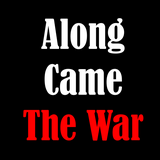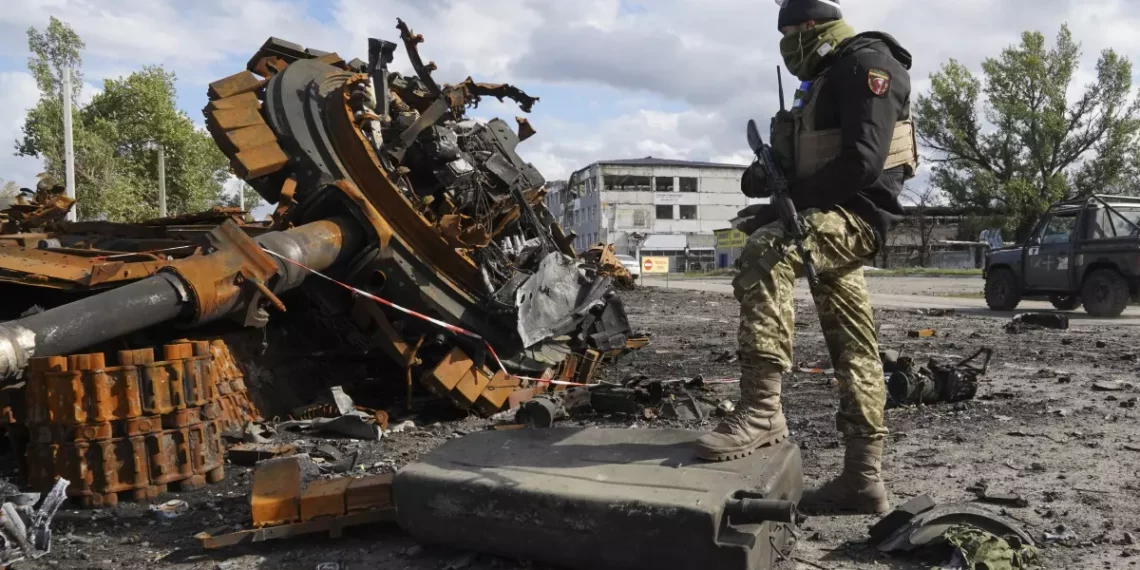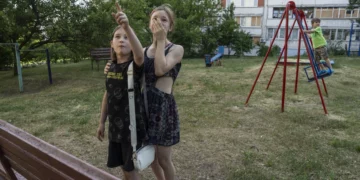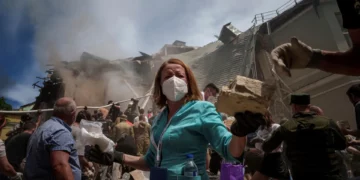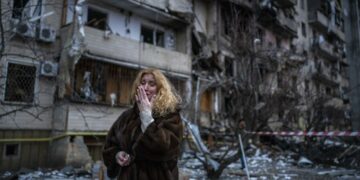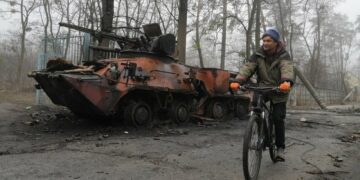Our main objective here is to prevent the Russians from ever attacking us again. And to achieve that, we have to create a situation on the battlefield that will force them to accept those conditions.
Throughout History
As the war in Ukraine drags on, more and more people are beginning to feel war-weariness, which comes to them in various forms: depression, fear of death, disbelief in their future, lack of trust in their government, etc. But the most important consequence of war-weariness is the signs of despair about the end of the war. By ‘despair’ here, I mean the specific mental state/world-view of a person when the desire to end the war as soon as possible is so strong that it becomes the absolute goal in that person’s mind. An absolute goal that must be achieved by any means necessary. And the easiest way to achieve it is through negotiations, which will involve certain compromises or even concessions.
Don’t get me wrong: there is nothing inherently evil about wanting peace or negotiations. After all, most wars have ended with conditions, concessions, and compromises. While the cases of unconditional surrender or an invading army marching through the capital are the most familiar to the public – take the Second World War as an example of a multitude of such events — they are actually quite rare. Since the end of colonialism, the main types of warfare have been regular wars between two countries and civil wars. In both cases, examples of one side simply steam rolling the other are not that common, and the modern examples of such scenarios always involve a major foreign power on one side, with no symmetrical response on the other.
But that’s obviously not the case with Ukraine. So, am I suggesting that we just give up and start negotiating? Yes and no. I say ‘yes’ when it comes to negotiations, but I’ll always say ‘no’ when I hear about giving up. Throughout history, there have been countless negotiations with countless different conditions. And that’s what matters — the conditions. When the frontlines stop moving and negotiations finally begin, each side will try to impose its own demands and conditions, and the situation both on the battlefield and in the wider scene will ultimately decide which side has the upper hand. Do we have the upper hand at the moment? Not really. Does that mean we should negotiate as soon as we see the Russian grip on our territory loosening? Again, no.
But why do I refuse to negotiate now? Didn’t I just say the opposite? I did, but I also talked about the compromises and concessions that will follow any negotiation. So the question is: if we start negotiating as soon as the Russian army is weakened, what kind of concessions will we have to make to them in exchange for them leaving our territory (or part of it)? And that’s where the hard part begins. Even if you win the war — you can still lose the peace and thus lose the war a few decades later. The most famous example would be Ukraine and Poland at the beginning of the last century.
You see, creating the right conditions is the key to winning the peace. And winning the peace is just as valuable as winning the war. Our main objective here is to prevent the Russians from ever attacking us again. And to achieve that, we have to create a situation on the battlefield that will force them to accept those conditions. Otherwise, we’ll end up repeating the century-old story of Ukraine and Poland, where the former relied too much on the “truce” with the Bolsheviks and on protection from Germany, which left it vulnerable when Germany lost the First World War and the Russians invaded again, and Ukraine had to give Poland part of its territory in exchange for its help in the war against the RSFSR. In the end, the Poles, fearing the prospect of the Russians invading their capital, betrayed Ukraine and signed the Riga Peace Treaty, which gave them part of our territory and apparently made them the winners of this conflict. But they were ‘winners’ only for about 20 years, when the Bolsheviks invaded again and robbed them of their statehood for 50 years. That’s how you win the war, but lose all prospects of peace.
So yes, Ukraine should negotiate with Russia, but those negotiations must be aimed not at ending the war, but at finally returning to real peace for decades to come. As a nation, we have already had enough examples of bad political decisions, so there must be enough ‘muscle memory’ when it comes to finally ending this war and deciding the terms on which it will be settled.
by Ivan Lyalyushko
